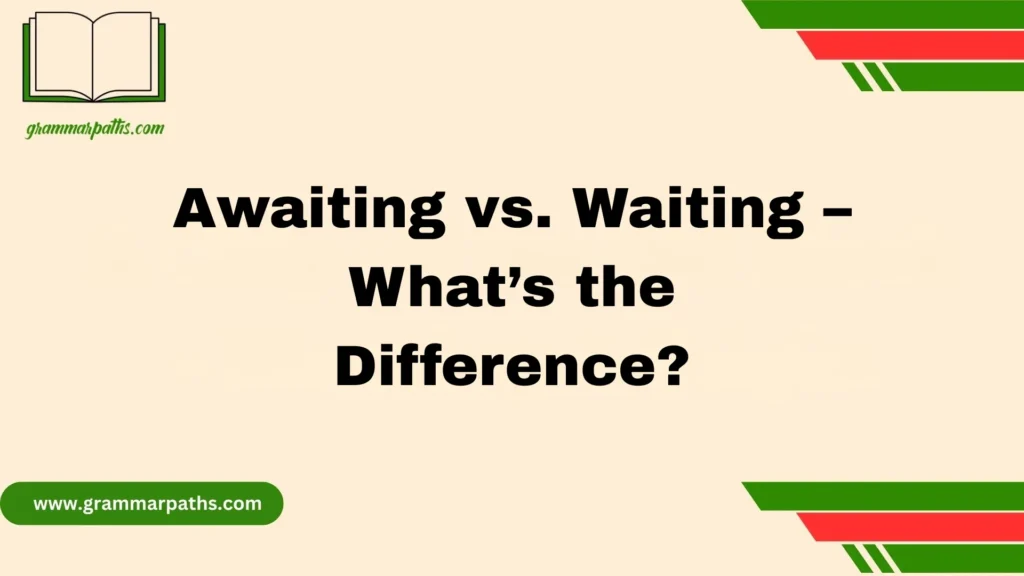When it comes to using English prepositions correctly, small words can make a big difference in meaning. One common point of confusion for learners is whether to say “On Friday” or “In Friday.” This question often arises because prepositions like on and in are used differently depending on time expressions. Knowing which one is correct can help you sound more natural and professional in both spoken and written English.
In English, “On Friday” is the standard and correct phrase when referring to a specific day of the week. For example, you might say, “The meeting is on Friday,” or “I will travel on Friday morning.” The preposition on is used before days and dates. In contrast, “In Friday” is grammatically incorrect in standard English, although you might occasionally hear it in poetry, song lyrics, or non-native speech as a creative expression.
Understanding the grammar rules for prepositions is essential for avoiding mistakes in everyday communication. Whether you are preparing for an English exam, writing an email, or improving your business English, using the right preposition ensures your sentences are clear and professional. This article will explain when and why “On Friday” is correct and why “In Friday” is not typically used.
Understanding Prepositions in American English
Prepositions are small words with a big job. They connect a noun or pronoun to another word in the sentence, showing a relationship in time, place, or direction.
When we talk about time, prepositions like on, in, and at tell us when something happens. Choosing the wrong preposition can completely change meaning—or make a sentence sound unnatural.
Example:
- I’ll see you on Friday.
- I’ll see you in Friday.
The first one tells the listener the exact day. The second feels incomplete and incorrect to an American English speaker.“Prepositions may be short words, but they carry the precision your sentence needs.”
Why “On” Is Used with Days of the Week
In American English, the preposition on is used before specific days or dates. That’s because “on” signals an exact point on the calendar—like a pin dropped on a timeline.
You say:
- On Monday, we have a meeting.
- On December 1st, the store opens.
You don’t say:
- In Monday
- In December 1st
Here’s a quick table to clarify:
| Preposition | Used For | Example |
| On | Specific days or dates | She’s traveling on Wednesday. |
| In | Months, years, centuries, seasons | We met in April. |
| At | Specific times of day | The movie starts at 8 PM. |
Correct Usage of “On Friday” in Sentences
You’ll find “on Friday” in many contexts—from scheduling to storytelling. The beauty of this phrase is that it works across formal and informal situations.
Formal examples:
- I’ll send you the report on Friday.
- The board meeting will be held on Friday at 10 a.m.
Casual examples:
- We’re grabbing coffee on Friday, right?
- I’m visiting my parents on Friday.
Practice tip: Try writing five sentences about your plans this week using “on” with each day. It will help lock the rule into your memory.
Common Mistakes with Day-related Prepositions
Even intermediate English speakers sometimes mix up prepositions with days. Here are common slip-ups:
- Using “in” instead of “on”
- I have a test in Friday.
- I have a test on Friday.
- Using “at” with days
- Let’s meet at Friday.
- Let’s meet on Friday.
- Leaving the preposition out in formal writing
- The event happens Friday. (OK in casual speech but not in formal text)
- The event happens on Friday.
Differentiating “On” from Other Time Prepositions
Here’s where learners get confused. “On,” “in,” and “at” all refer to time, but they zoom in at different levels.
Think of it like a camera lens:
- In = wide shot (months, years, seasons)
- On = mid shot (specific day or date)
- At = close-up (exact time)
| Preposition | Time Range | Example |
| On | Specific day/date | She called me on Friday. |
| In | Month/year/season | They married in 2019. |
| At | Exact time | We’ll meet at noon. |
Memory trick: Imagine a calendar. “On” sits right on top of a single day. “In” covers an entire block (like a month). “At” pins down a clock time.
Why “In Friday” Is Inaccurate
“In Friday” sounds wrong because “in” refers to a larger container of time—not a single day. A day is too small to hold the meaning of “in.”
Think of it this way:
- You’re “in” April because April has 30 days.
- You’re “on” Friday because Friday is just one square on the calendar.
Integrating “On Friday” into Weekly Planning
If you plan your week, you’re probably already using “on Friday” without realizing it. It appears naturally in calendars, reminders, and to-do lists.
Examples in planning:
- Doctor’s appointment on Friday at 3 p.m.
- Dinner reservation on Friday evening.
- Presentation delivery on Friday morning.
When you use “on Friday” in writing, you signal clarity and precision—important for work, school, and personal organization.
Casual Speech vs. Formal Writing
Here’s where things get interesting: In spoken American English, we sometimes drop “on” before days of the week.
- Casual: “See you Friday.”
- Formal: “See you on Friday.”
This is fine in conversation, texts, or quick notes. But in business emails, essays, or official documents, keep the “on” for correctness and professionalism.
Enhancing Conversational Skills Through Prepositions
Want to sound more natural? Practice using “on” with all days of the week. This helps you internalize the rule until it becomes second nature.
Practice drills:
- Write one sentence for each day of the week.
- Record yourself saying them out loud.
- Use them in real conversation.
Creative Sentence Construction with “On Friday”
While grammar is about rules, communication is about style. You can make “on Friday” part of expressive, engaging sentences:
- On Friday, the city comes alive with music and street food.
- She promised me that on Friday, we’d watch the sunrise together.
By combining the rule with vivid language, your sentences can both inform and connect emotionally.
Consistency Across All Days of the Week
The rule for “on Friday” applies equally to every other day:
| Day | Correct | Incorrect |
| Monday | on Monday | in Monday |
| Tuesday | on Tuesday | at Tuesday |
| Wednesday | on Wednesday | in Wednesday |
| Thursday | on Thursday | in Thursday |
| Friday | on Friday | in Friday |
| Saturday | on Saturday | in Saturday |
| Sunday | on Sunday | in Sunday |
Conclusion
In summary, the correct phrase in English grammar is “On Friday” when talking about a specific day of the week. The preposition on is always used before days and dates, while “In Friday” is not used in standard English. However, you might encounter “In Friday” in creative or non-standard contexts, such as poetry or song lyrics, but it’s not recommended for formal or everyday communication. By mastering the correct use of prepositions of time, you can make your spoken English and writing sound more natural, fluent, and accurate.
FAQs
Q1: Which is correct, “On Friday” or “In Friday”?
A1: “On Friday” is correct for standard English usage when referring to a specific day.
Q2: Can I use “In Friday” in any situation?
A2: Only in creative or informal contexts, such as poems or song lyrics—not in formal writing.
Q3: Why do we use “on” before days?
A3: In English grammar, the preposition on is used for specific days and dates.
Q4: Is “On Friday” formal or informal?
A4: It works in both formal and informal situations.
Q5: What’s an example sentence with “On Friday”?
A5: “We have a family dinner on Friday evening.”

Grace Marie is the dedicated writer behind GrammarPaths.com, where she shares her passion for English grammar, idioms, and writing mastery. With a strong background in language studies and years of experience helping learners improve their communication skills, Grace creates clear, practical, and engaging content that makes English easy to understand.










